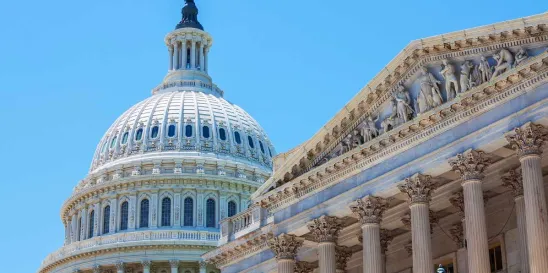The US Court of Appeals for the Ninth Circuit concluded that the Contract Disputes Act (CDA) “impliedly forbids” federal contractors from bringing most trade secret misappropriation claims against federal agencies in district court. Instead, the CDA requires contractors to bring such claims before the US Court of Federal Claims or the agency board of contract appeals, both of which are located in Washington, DC. United Aeronautical Corp. v. United States Air Force, Case No. 21-56377 (9th Cir. Sept. 7, 2023) (Smith, Lee, JJ.) (Collins, JJ., dissenting).
United Aeronautical Corporation (Aero) develops firefighting products, including the Mobile Airborne Fire Fighting System for use in aerial firefighting. The US Forest Service contracted with Aero to develop an updated aerial system to assist the agency in fighting fires. The ensuing prototype necessarily incorporated significant amounts of Aero’s intellectual property. To protect that information, Aero and the Forest Service executed a Data Rights Agreement (DRA) providing that “the technical data produced . . . or used or related” to developing the prototype “shall remain the property of [Aero],” but specifying that the Forest Service “shall have unlimited rights to view and use the data required for the continued use and operation of the” prototype. The Forest Service proceeded to share Aero’s data with the Air Force, which developed an upgraded aerial firefighting system it marketed internationally.
Aero sued the Air Force for misappropriating its trade secret information. Procedurally, Aero brought its claims under the Administrative Procedure Act (APA), seeking a declaration that the Air Force’s actions violated the Trade Secrets Act and federal procurement law, and an injunction prohibiting any further use of that data to develop competing products. Although the Air Force believed it was permitted to use Aero’s trade secrets pursuant to the DRA, it also argued that Aero’s complaint must be dismissed for lack of subject matter jurisdiction. The district court agreed, concluding that the CDA vests exclusive jurisdiction over federal-contractor disputes with the Court of Federal Claims where, as here, the dispute is related to a procurement contract. Aero appealed.
The Ninth Circuit affirmed the dismissal. Aero argued that the APA permits any “person suffering legal wrong[s] because of agency action” to seek redress in a federal district court and that the Air Force’s misappropriation of Aero’s trade secret information—in violation of the Trade Secrets Act—was exactly that. The Ninth Circuit disagreed, concluding that the nature of Aero’s claims (misappropriation, not breach of contract) and the relief it sought (an injunction, not damages or specific performance) mattered little. What mattered was the existence of a contract between the contractor and an agency that “related to” the intellectual property at issue.
Under the APA, a private party cannot bring suit when its claims are “impliedly forbidden” by a different statute that vests exclusive jurisdiction with another tribunal. The Ninth Circuit concluded that the CDA “impliedly forb[ade]” Aero’s claims since it was enacted to create a dispute resolution system for claims concerning federal procurement contracts, vesting exclusive jurisdiction of these disputes with the Court of Federal Claims or the agency boards of contract appeals. A claim therefore “arises under” the CDA and must be filed with one of these tribunals when it “relates to” a procurement contract to which the plaintiff was a party. Because Aero was undisputedly a contractor and the DRA was clearly a procurement contract, the only issue was whether Aero’s claims “relate[d] to” the DRA—an inquiry that turned on whether Aero’s claims had “some relationship to the terms or performance” of the DRA. The Ninth Circuit found that this was clearly the case and affirmed dismissal of Aero’s complaint.
Practice Note: Federal contractors, including those doing business in the Ninth Circuit, will likely need to bring claims of trade secret misappropriation across the country in the nation’s capital. Essentially every contractor licensing the use of its trade secrets to the US government will have a procurement contract governing the permissible use of that information.




 />i
/>i
